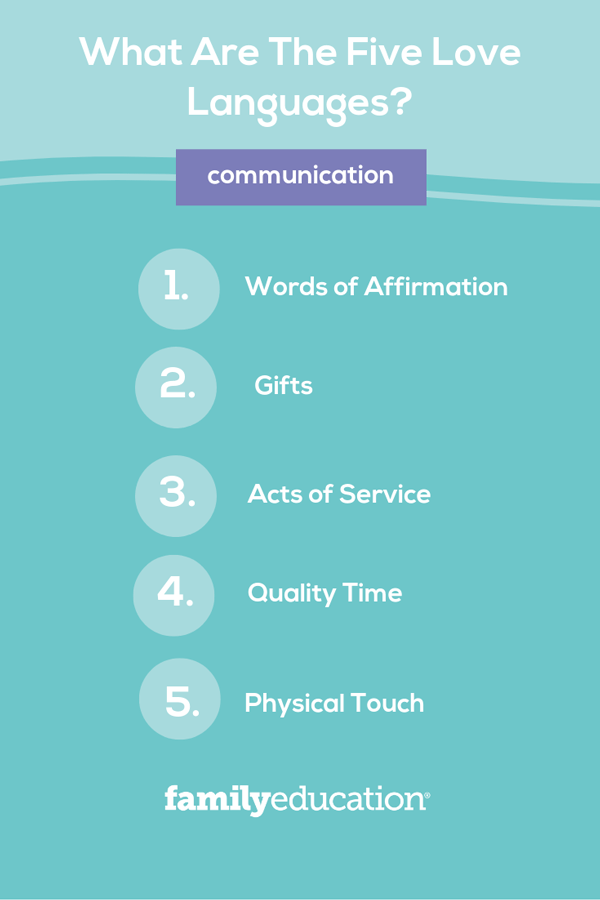How to Determine Your Child's Love Language

First outlined in 1992 by Gary Chapman in the book The Five Love Languages: How to Express Heartfelt Commitment to Your Mate, the five love languages are said to be the key to connecting on a deeper level with your significant other, but have since expanded to help individuals get in touch with others around them as well, including family members, friends, and children.
Determining your child’s love language can help you contribute to their emotional strength, while helping them feel more secure in your bond, and it’s easier than you may think to figure out what they speak best.
More: The Natural Progression of Your Child's Communication
What Are The Five Love Languages?
Out of the five love languages, each person has a primary love language which speaks to them on a deeper level than the other. Determining the love language for those closest to you can help you better foster those relationships and express your love for them in a way which connects with each person best:
Words of Affirmation
Those who have words of affirmation as their primary love language will appreciate verbal compliments more than anything else, which can include something as simple as “I love you,” or “I appreciate you,” but phrases such as “thank you for doing your homework” or “great work doing your chores” can also be uplifting. Writing down words in celebratory cards or lunch box notes or even cheering them on at sports games can also be reassuring.
Your Child May Speak This Love Language If…
- They ask for reassurance that they are loved
- They seek compliments on their physical appearance
Gifts
A meaningful or thoughtful tangible gift “just because” can go a long way to make this person feel appreciated and loved, which could be as small as a new coloring book before vacation or as big as a new video game for a stellar report card.
Your Child May Speak This Love Language If…
- They look for rewards over hugs
- They hope to be recognized with presents over attention
Acts of Service
Instead of physical gifts, this love language expresses itself by doing things you know the other person would appreciate, such as preparing lunch, going the extra mile with chores around the house, or helping to fold laundry. This may be harder to determine with a child than an adult, since parents are likely already performing many of these selfless actions for their kids at a young age.
Your Child May Speak This Love Language If…
- They ask for help to learn a new skill
- They look for your guidance in working on a project for school
Quality Time
If this is your child’s love language, they likely crave being the center of your world, and want undivided attention to spend time together without the distractions of TV or other smart devices. This special time can help them feel comforted despite all of the busy-ness that goes on in day-to-day life.
Your Child May Speak This Love Language If…
- They ask for more solo stories at bedtime
- They make attempts to seek out your attention
Physical Touch
Physical touch has proven to be calming to the nervous system, and those who prioritize physical touch need to feel love with a back rub, hugs, hand-holding, kisses, or pats on the back, but could also look for playing sports or physical activities together. These forms of physical touch are intentional, and will help the person feel more connected in the relationship.
Your Child May Speak This Love Language If…
- They ask for hugs or kisses frequently
- When they are sad, they would rather be held than speak about their issues
Understanding which love language is your child’s primary is easy thanks to every day clues to pay attention to, including:
- How your child expresses love to you and others
- What your child asks for most often
Though everyone has a primary love language, showing unconditional love in all ways from a young age is obviously extremely beneficial.
Don't have time to read now? Pin it for later:

Looking for other ways to connect with your kids? Here are 50+ Questions to Ask Them to Get Them Talking.

